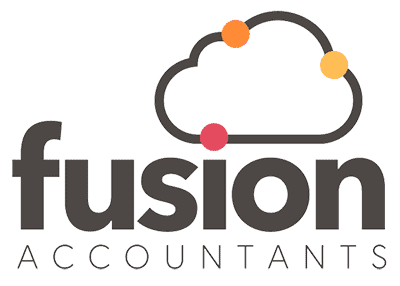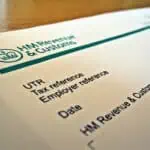The Complete Guide to P11Ds
Reading Time:
What is a P11D?
A P11D is a form that details any benefits- in -kind and expenses provided to employees and directors during that tax year and the value of those benefits or expenses.
The purpose of the P11D form is to allow HMRC to calculate the amount of Income Tax and National Insurance that is due on those benefits or expenses.
Not sure what benefits-in-kind are? Read our detailed guide here
Who needs to file a P11D?
A P11D is a form that an employer must file for any employee who has received benefits or expenses from their employment.
Are you self-employed?
Those who are self-employed or hold a director position at a company should also fill out this form.
How many forms do I have to fill out?
Each director or eligible employee must have a separate P11D.
You should not file a P11D if you fall into any of the following categories:
- An individual has incurred no taxable costs, received no taxable payments, or obtained no taxable benefits.
- All the expenditures and benefits have already been included in your payroll taxes.
What to include
There are a total of 14 subcategories to the P11D. In the table below, we’ve included summaries of each section.
| Number | Section | Section Name | Information required |
|---|---|---|---|
| 1 | A | Assets transferred (cars, property, etc.) | The asset’s market value on the date of transfer or an amount based on how much it costs you. |
| 2 | B | Payments made on behalf of an employee | Sums that the employee was responsible for covering but which you ended up covering instead. |
| 3 | C | Vouchers & credit cards | The price and any additional fees associated with supplying any vouchers (including season passes) that may be used to exchange for cash, products, or services. All costs and any payments made using the supplied credit cards. |
| 4 | D | Accommodation | The monetary value of the housing allowance that an employer provides an executive or employee and their dependents. Take the monthly rent into account if the home is rented. |
| 5 | E | Mileage allowance payments (not taxed at source) | The sum exceeding the allowed amount |
| 6 | F | Cars & car fuel | Included in the vehicle benefit charge are the following: The retail price of the car- less the employee’s down payment+ any other applicable taxes and fees. *Any free gas given to a vehicle as a benefit will be added to the total cost of that benefit. |
| 7 | G | Vans & van fuel | In 2021/22, the cost of the van benefit is £3,500 per year. *When a van is unavailable, the fee is lower. For 2021–2022, the fee for the van fuel benefit is £669. *If the van benefit charge (before any deductions) is more than zero, this fee must be paid for all vans that receive private gas. |
| 8 | H | Interest-free & low interest loans | Cases, when a director or employee (or their families) received a loan from the company for which they did not pay interest or paid interest at a rate lower than the statutory rate must be disclosed. |
| 9 | I | Private medical treatment /insurance | Cost of all medical and dental care you coordinate, arrange, and pay for, as well as any insurance premiums paid against the service. |
| 10 | J | Qualifying relocation expenses payments and benefits | Include any surplus above £8,000 of any perks and payments for relocation-related expenses that qualify. *Many typical moving expenses, such as stamp duty, estate agents and attorneys’ fees, house-hunting excursions, and removal charges, are exempt. |
| 11 | K | Services supplied | Additional cost for any services provided where the agreement is between you and the provider |
| 12 | L | Assets at the employee’s disposal | The annualised value from using an asset |
| 13 | M | Other items (including subscriptions and professional fees) | Data regarding fees and subscriptions that you or someone else set up and paid for. *Include one-time and yearly membership fees to clubs for leisure, sports, and other activities. |
| 14 | N | Payments made to cover the employee’s expenses. | Enter the total non-exempt costs reimbursed for expenses such as travel, lodging, meals, home phone service, and entertainment. |
PD11-Exemptions & Allowable expenses
As a rule, employees don’t have to pay for benefits where the private use of the service isn’t critical in how the employee uses it to do their job.
HMRC has informed employers that they don’t have to report some common employee benefits and expenses, such as:
- Business travel
- Phone bills
- Business entertainment
- Uniform
- Work tools
- Annual parties &similar events
- Long-service awards
- Workplace parking
- Workplace charging
- Small benefits of up to £50
- Health screening,
- Home-working allowance
- Bikes and safety equipment
- Tax-free childcare
P11D deadline
By July 6th, after the close of the tax year, the HMRC must have received all eligible PD11 forms.
P11D deadline – example
For the fiscal year 2021-2022, which begins on April 5th, 2021, and ends on April 6th, 2022, the due date for filing The P11D is July 6th, 2022.
PD11 Penalties
You may face a penalty if any of the following apply to you:
Missed the deadlines
- If the employer misses the deadline for filing a P11D return, they could be fined up to £300, with further daily fines of up to £60.
- When a registered payroll benefits provider does to disclose payment to the relevant authorities on or before the payment is made, they may be liable for fines.
Incorrect Submissionss
- There is also a penalty for filling out form P11D incorrectly; the maximum fine is £3,000 per form.
- Schedule 24 of the Finance Act 2007 says that an employer who signed up for payroll benefits and sent an incorrect RTI return will be penalised.
What is a P11D (b) form?
A P11D(b) form details the amount of Class 1A National Insurance that must be paid on the expenditure. When there are no benefits to declare, you should file a “nil” return to avoid penalties.
Other times, you may have to file a P11D (b)
If you must return a particular expense payment or benefit.

P11D(b) deadline?
A P11D(b) form must be submitted with your P11D
PD11(b) Penalties
You will be fined £100 for every full or partial month that your P11D(b) is late.
If you fail to make payments to HMRC, they’ll penalise you with fines and interest.
Also Read: Stripe Xero Integration
How to submit
You can submit both your P11D and P11D(b) in three ways:
- Commercial software
- PAYE online service
- By post (only if you can not use any of the above online options)
The postal address can be found on the form.
Conclusion
P11Ds are essential in ensuring that your business complies with HMRC regulations. You can avoid penalties or fines by understanding what they are and how to complete them correctly. With the help of this guide, you should now be able to prepare and submit your P11Ds confidently.
Looking for help with your taxes or payroll? Fusion accountants in London are here to help! We offer specialist services and guidance to businesses and individuals. Contact us today to find out how we can help you!






